
Echoes from Music Biz 2024
Our team attended the music industry event of the year, where the surge in consumer...
Music Ally Connect, a new two-day international music business conference in London, concluded successfully on January 23, 2024, featuring influential industry figures such as Universal Music Group’s EVP and Chief Digital Officer and Roblox’s Head of Music Partnerships. Around the different panels, it was definitely the major meeting point for music professionals and music tech companies to start the year.
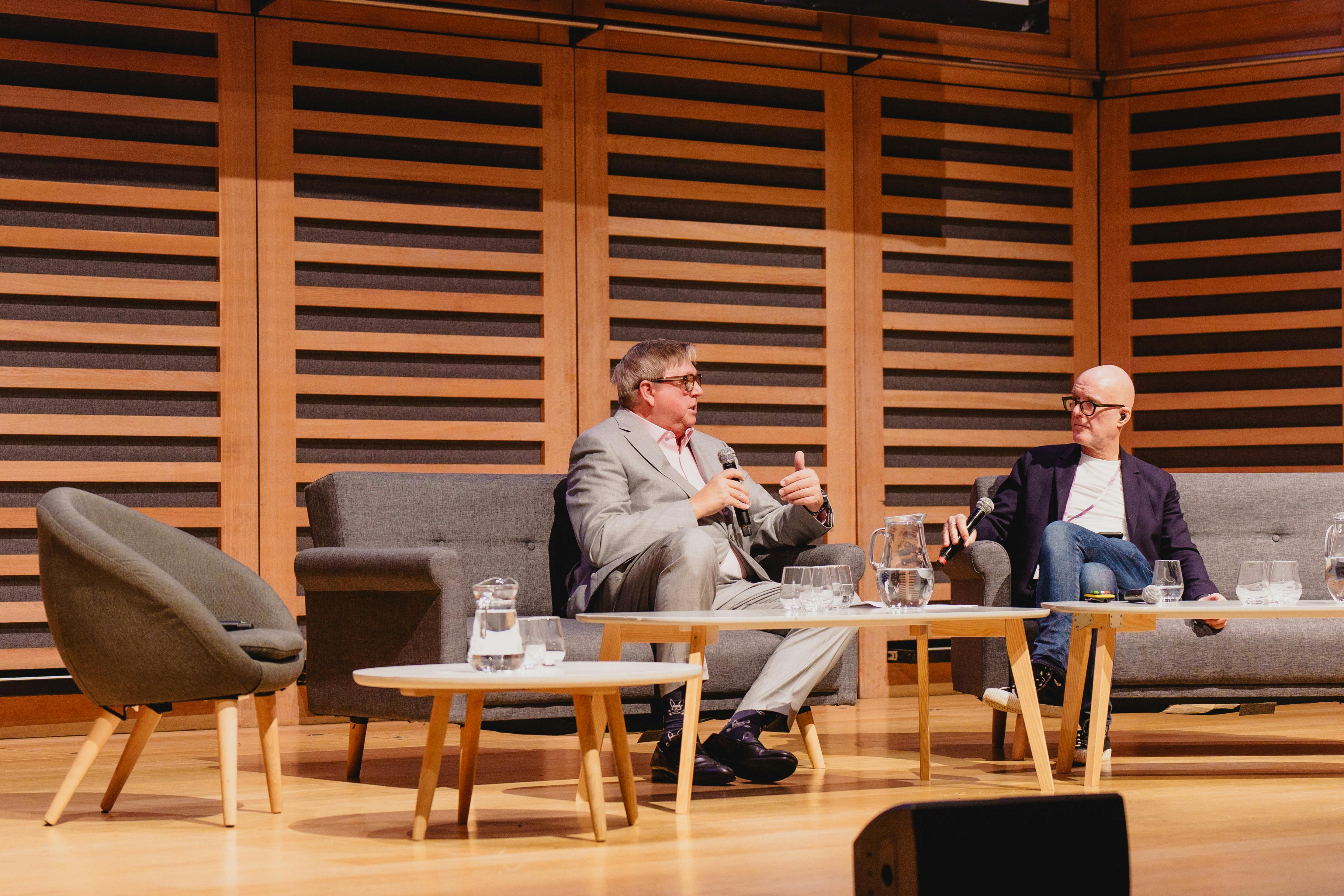
We’re on a journey right now. North of 600 million subscribers, towards a billion subscribers by some point around the end of this decade. There was a time, maybe 10 years ago, when there was significant doubt about whether or not we would ever have 100 million subscribers…
Michael Nash, EVP, chief digital officer at Universal Music GroupFor him, this growth will be mostly driven by developing markets where ARPU (average revenue per user) is low but could grow significantly with the right strategy.
👉 Localized content will definitely help here, with local language lyrics video as a strong engagement format.

Yet, the push for the artist-centric model UMG has been developing with streaming-service partners has sparked much controversy. Primarily the fact that it’s coming from one major label seemingly trying to establish new rules for his own interest. It’s a multi-year project, and sticking to the no-change-is-needed philosophy never achieved good results, he responded.
One of the streaming “partners” associated with this move has been Deezer. Jeronimo Folgueira, its CEO, came to the rescue, unveiling four pillars around which this new payout model is based: fraud detection, removal of “noise” tracks, double boosts for popular artists (with over 1,000 monthly listeners) and tracks (those actively searched or favorited), and a user cap preventing excessive streaming from a single account (over 1,000 tracks a month). He acknowledges that the artist-centric model may not be one-size-fits-all, and different platforms may adopt various incentives; it will evolve over time.
Deezer and Spotify announce a minimum of plays to respectively monetize or penalize tracks with a low number of streams, facing significant criticism.
Nash just recalled the figures from the recent Luminate research firm study, characterizing the “Oversupply” of music in the streaming era:
“158 million tracks – 86% of all tracks – had less than 1,000 plays last year, on services that have hundreds of millions of monthly active users. 80 million tracks – 43% of this content – had less than 10 plays last year… 45 million tracks, 25%, with zero plays,” he said.
👉 There is urgency in finding new channels for revenues and leveraging assets too often overlooked in the content distribution strategy. It is essential to make your catalog searchable and discoverable to connect it with consumers that will compensate for the use, with music supervisors being one of those.
Universal’s EVP, chief digital officer, explores "superfan experiences" as a key strategy, aiming to cater to the 15-20% of music listeners considered super fans.
Illustrating this is the Spotify announce of a premium subscription tier to diversify and offer new revenue opportunities.
Copyright laws globally respond to AI in three ways: legal exceptions in Japan and Taiwan, narrow exceptions with opt-out rights in the EU, and ongoing exploration in the UK and US. UK government praised for not seeking broad AI training exceptions, recognizing the balance between supporting AI innovation and maintaining robust IP protection.
About AI’s role in music evolution, Michael Nash from UMG highlights the importance of artist-led AI initiatives, emphasizing the potential for innovation in the creative process.
On the administrative and supply chain side, AI has been explored so far by music professionals for copyright management, music search, classification, and content creation scalability, with undeniable success.

Just last year, through our algorithm, we managed to process 21 million claims and overall, those services help our clients achieve 60% more revenue that would otherwise be lost.
Orfium CTO Michael Petychakis, on the royalties management front.👉 Rights managers rely on music content recognition solutions like Cover Detector and Infringement Detector.
Hyper-localisation is the next big thing, especially on the content side, where now you’re speaking everyone’s language. Let users engage with the music in the way they want to engage with it. That’s a very positive thing that I think can come out of AI. That will drive more traffic and revenue for artists and music companies.
Blurb.fm CEO Irfaan Premji, on the future of content creation supported by AI👉 Creating content to distribute on the multiple channels is an issue for record labels, so automate all the actions allowing artists to communicate with the audience is an area to look into. In this context we set up a complete workflow to automate the lyrics transcription, translation, and alignment.
This task [of finding a track] would have taken her four hours, but it actually took 10 minutes. Not because we were able to do her job for her. But if she was presented with a catalogue of millions of tracks, it was about helping her narrow that down to the 100 that she wanted to listen to, and then she was able to make that creative decision.
Figaro CEO Lydia Gregory, on benefit of metadata tagging for a music supervisor.👉 Our music analyzer algorithm providing creative medata and temporal markers to help efficiently manage large music catalogues and aid music supervisors in the selection process.
Beatdapp co-CEO Morgan Hayduk reveals that up to 10% of streaming is manipulated or fraudulent, with a focus on organized crime. In India, stream manipulation is driven by the industry's emphasis on fast milestones, leading to the emergence of numerous small companies engaging in fraudulent activities. Industry unity is crucial to combat streaming manipulation, and collective action is seen as a key step to address the issue globally.
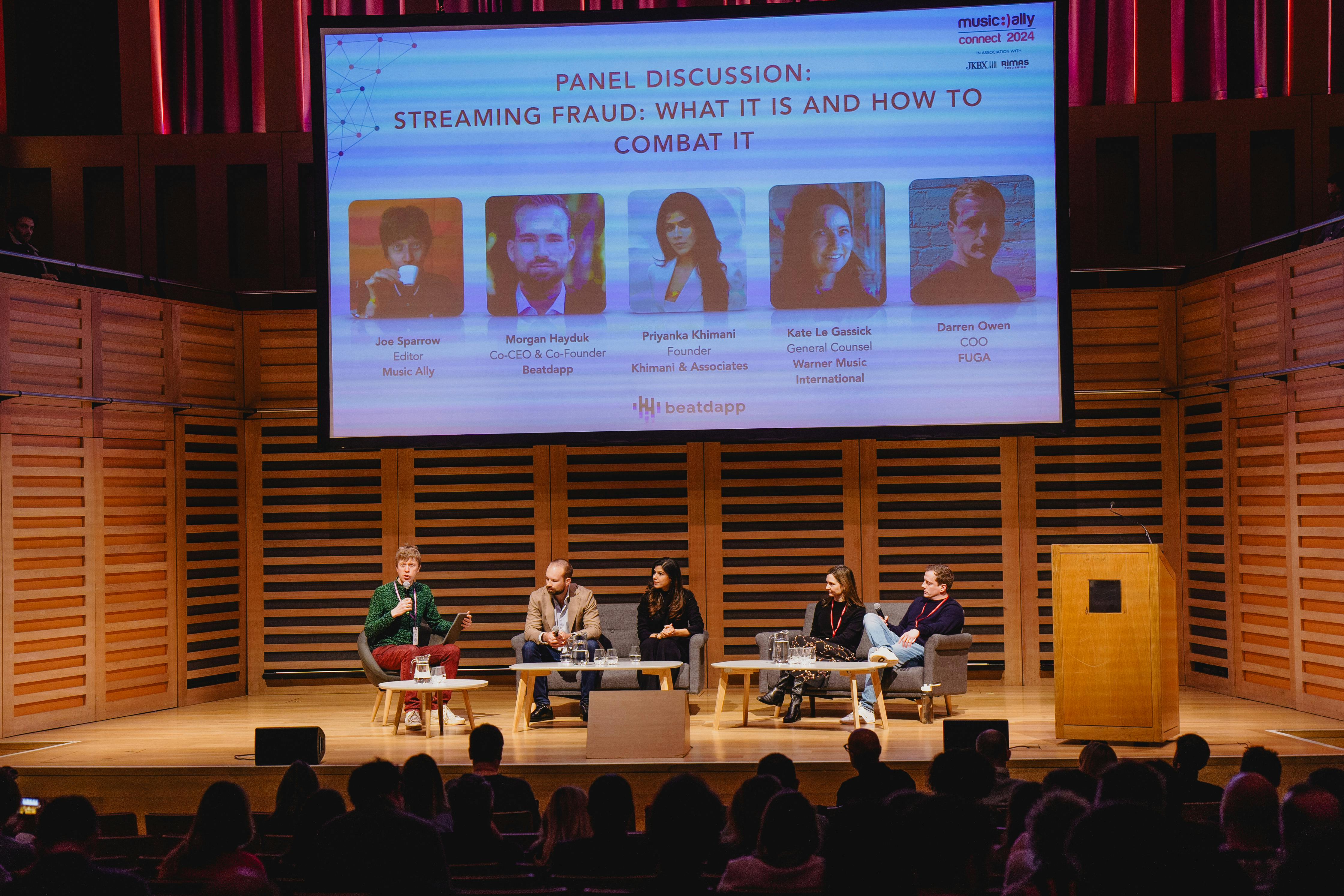
Helena Kosinski from Luminate presented the significant growth in music streaming across Japan and Asia, with a notable increase in Asian streams by 78% from 2022 to 2023.
Tinko Georgiev highlights China's growing music market, which increased by 16.8% YoY, emphasizing opportunities for rightsholders in areas like micro-sync distribution and collaborations with lifestyle apps.
👉 Content localization is key, to do it at scale without investing in too many resources, look at this lyrics translation and alignment workflow we’re envisioning.
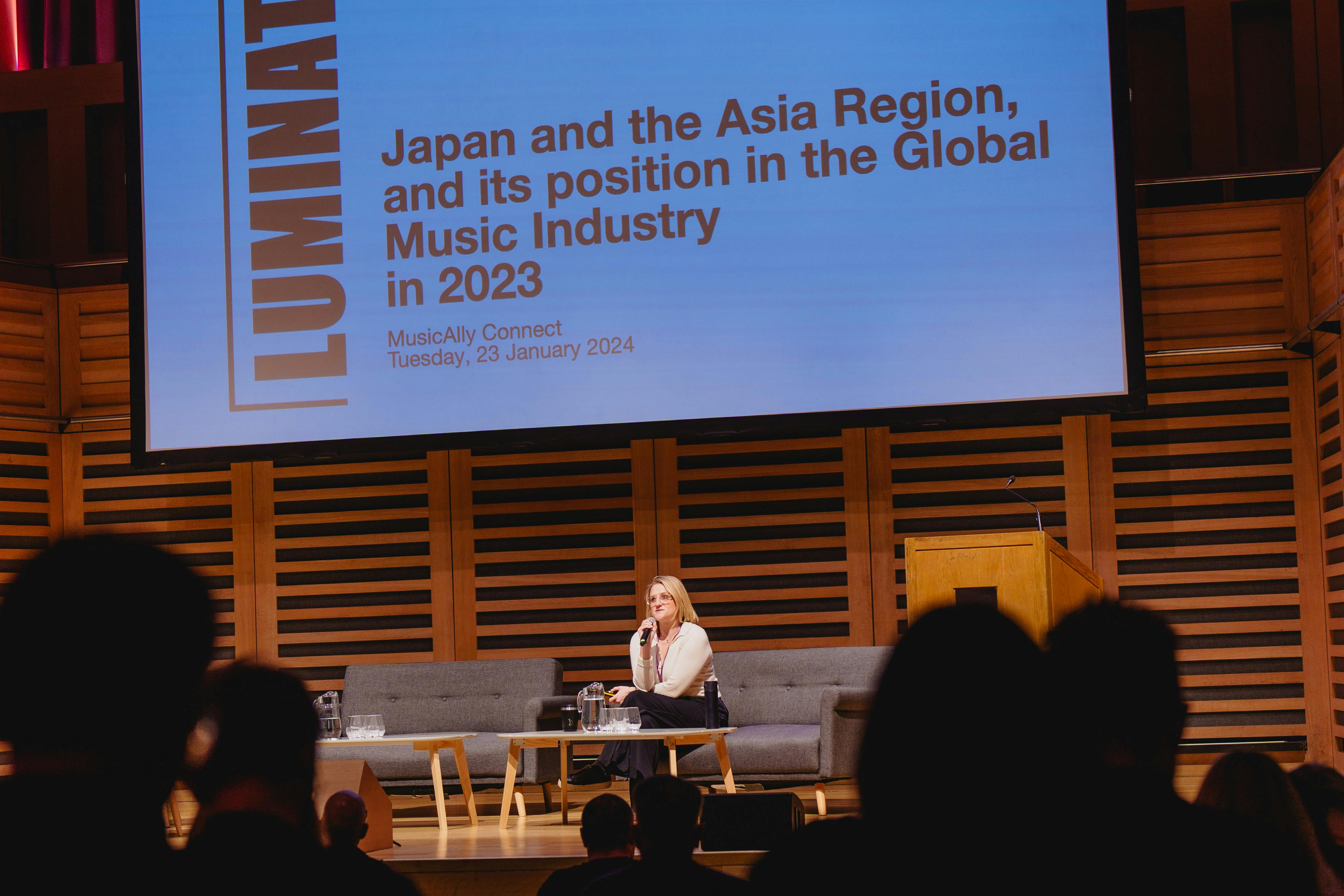
Vevo’s, TikTok’s, and YouTube's representatives acknowledge the need for both short and long-form videos and value them equally as strategic on the content front. But what grabbed our attention here is the latter platform’s Dan Chalmers saying they are building monetization around YouTube Shorts. It could create a substantial new revenue stream for music rightsholders, with the counterpart of being able to identify copyright audio usages on this format, as currently YouTube Content ID filter does not scan Shorts videos.
👉 At Ircam amplify we are well positioned on tackling this challenge, with automatic cover and copyrighted audio detection, covering the needs of the whole audio rightsholders spectrum.
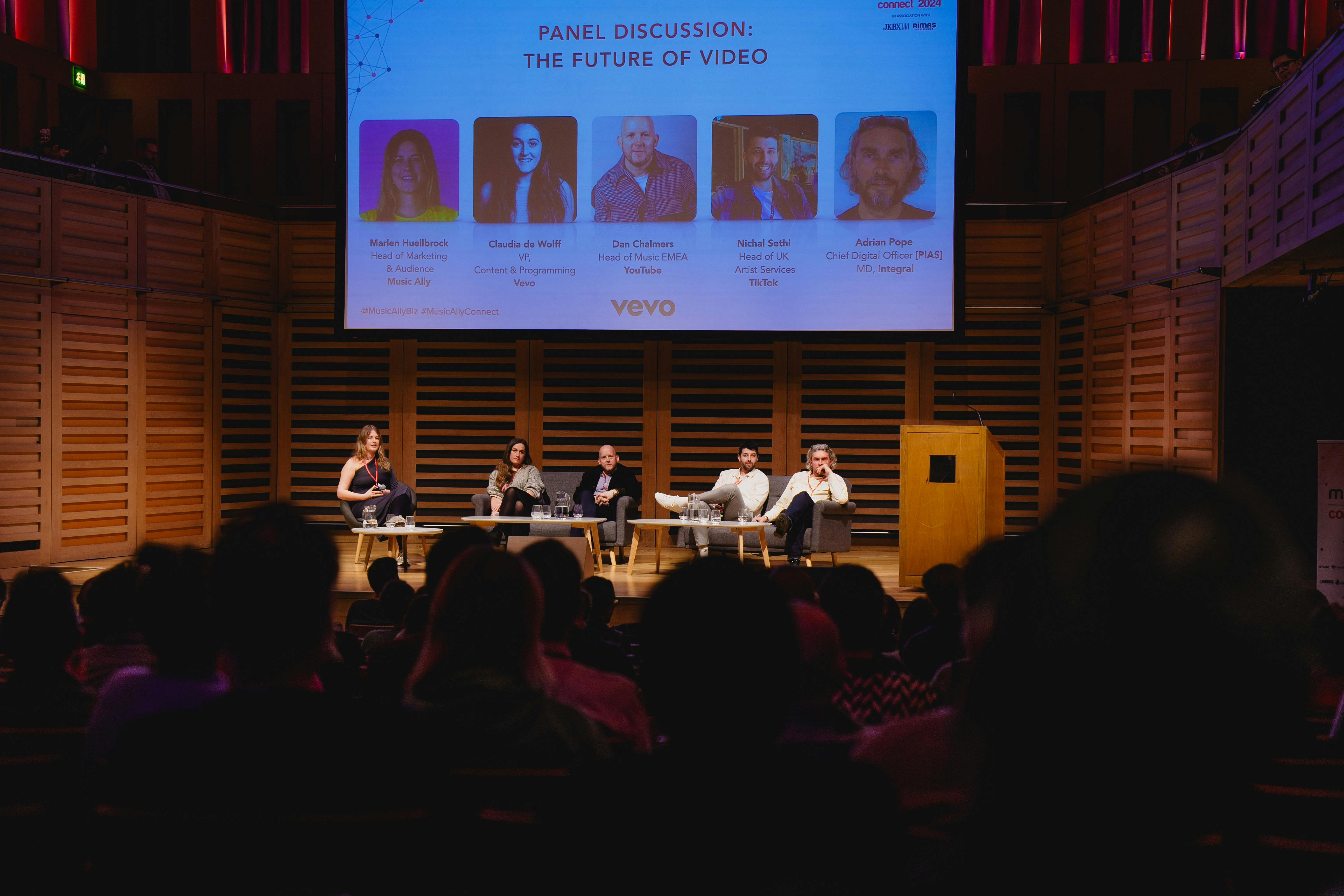
Discussion on what music rightsholders seek from startups, including UMG's UMusicLift hub to address startups' challenges in navigating rights.
Tech compatibility is a requirement for startups partnering with major labels. As Romain Simiand, our very own CPO pointed out in our partner presentation, we brought tech-agnostic solutions, as they can integrate seamlessly into any internal workflow or processes, through API calls.
AI surely made a point in bringing efficiencies and scale to different tasks a label has to take care of.
Interest in AI, games, and virtual worlds as technologies excited the panel, along with the need for tools to identify and tackle streaming manipulation.
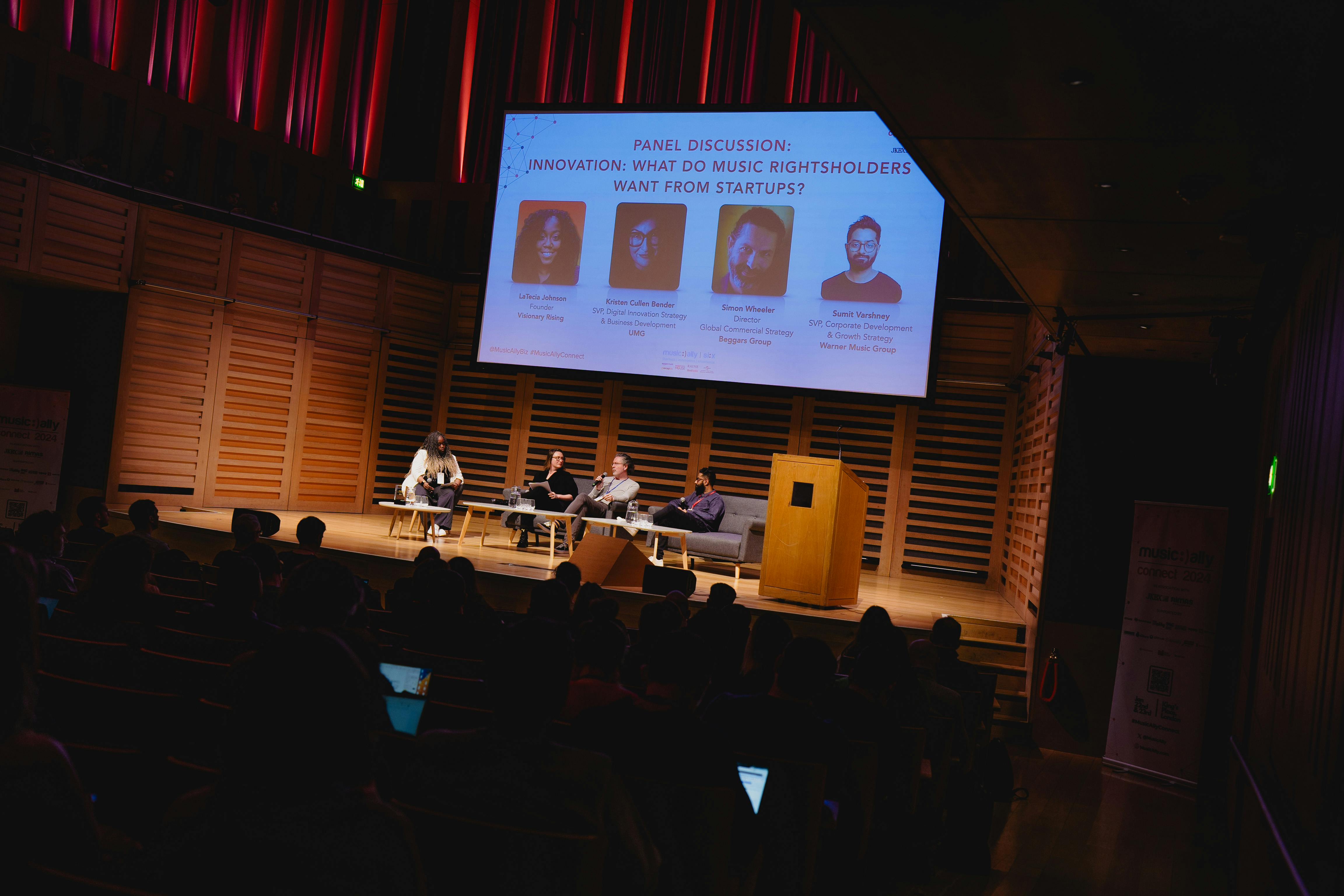
The Music Ally startup initiative SI:X concluded with presentations from six finalists chosen by partners such as Amazon Music, Red Bull Media House, or ASCAP Lab. The finalists were Masterchannel, an AI audio mastering tool; Tickets for Good, a platform providing reduced and free event tickets for specific audiences, promoting well-being; 12on12, a luxury vinyl record company; Flame2Fame, manufacturing musical gear using recycled materials; Music Tomorrow, optimizing visibility on DSPs for labels through algorithm analysis; and StanPass, an AI-driven automation platform for event marketers. While Tickets for Good won the audience vote, all six startups' pitches really grabbed attention, and we’re wishing them all the best!
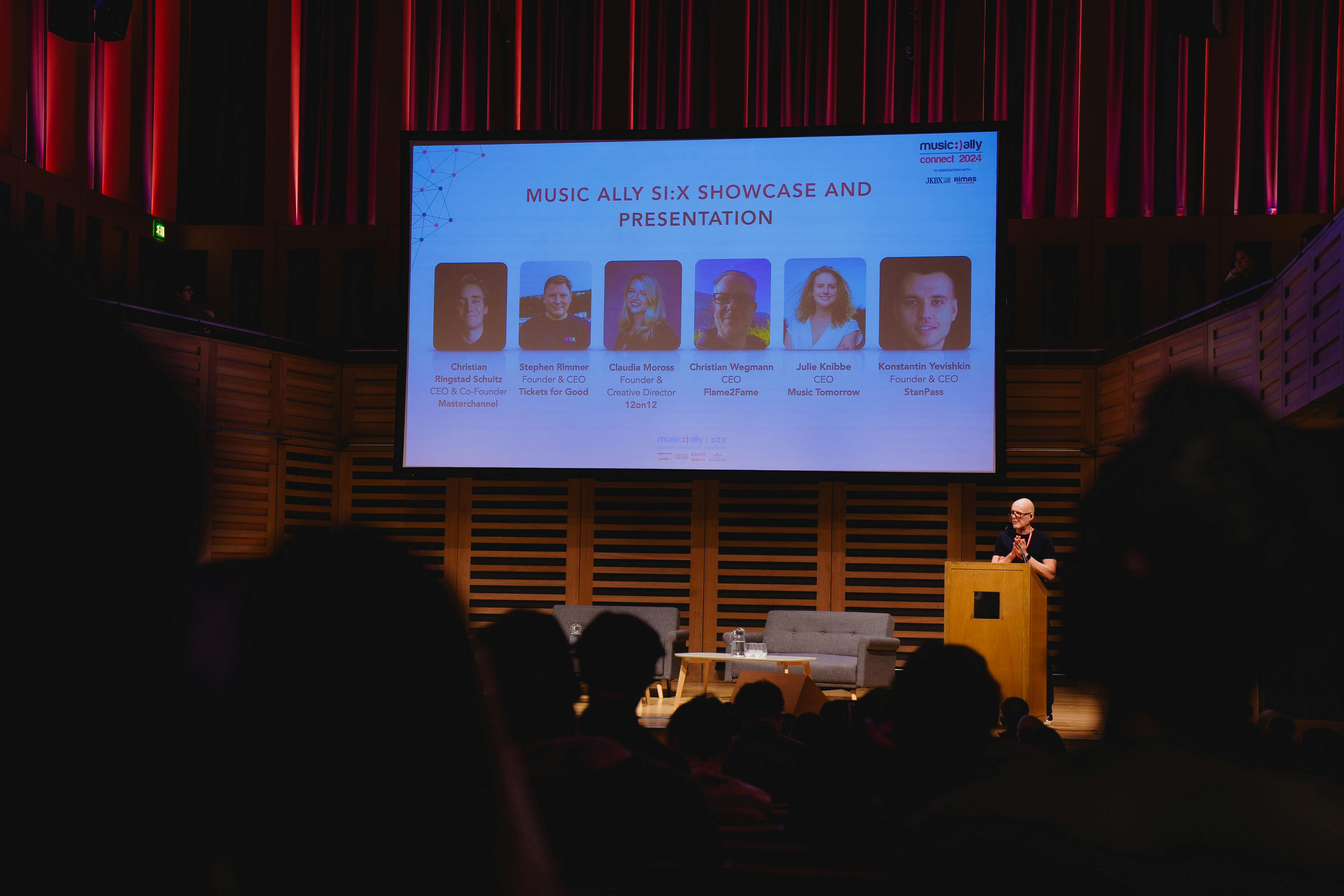
Focus is definitely on quality over quantity in terms of streaming remunerations, and generative AI will contribute to creativity for sure, while agreements around copyright are yet to come. But AI-generated tracks, diluting this quality, will be chased down (more to come on our side). Your catalog is the real asset here; it’s time to make it searchable and discoverable for sync opportunities and beyond. Content strategy to promote and distribute tracks must be rethought and elevated, and hyper-localization will be the key to unlock new territories, both geographically and demographically. On the latter points, AI once again will help; this is the bright side of AI for music! As for us, we made great connections among music tech peers, teaming up to provide audio expertise and algorithmic solutions to the music industry’s challenges!
Thanks to Paul Brindley and all the Music Ally team for this spectacular event!
Think we're on the same wavelength?